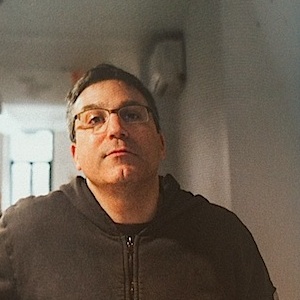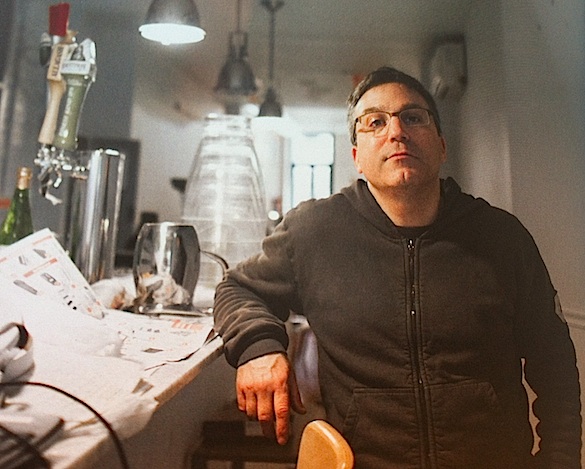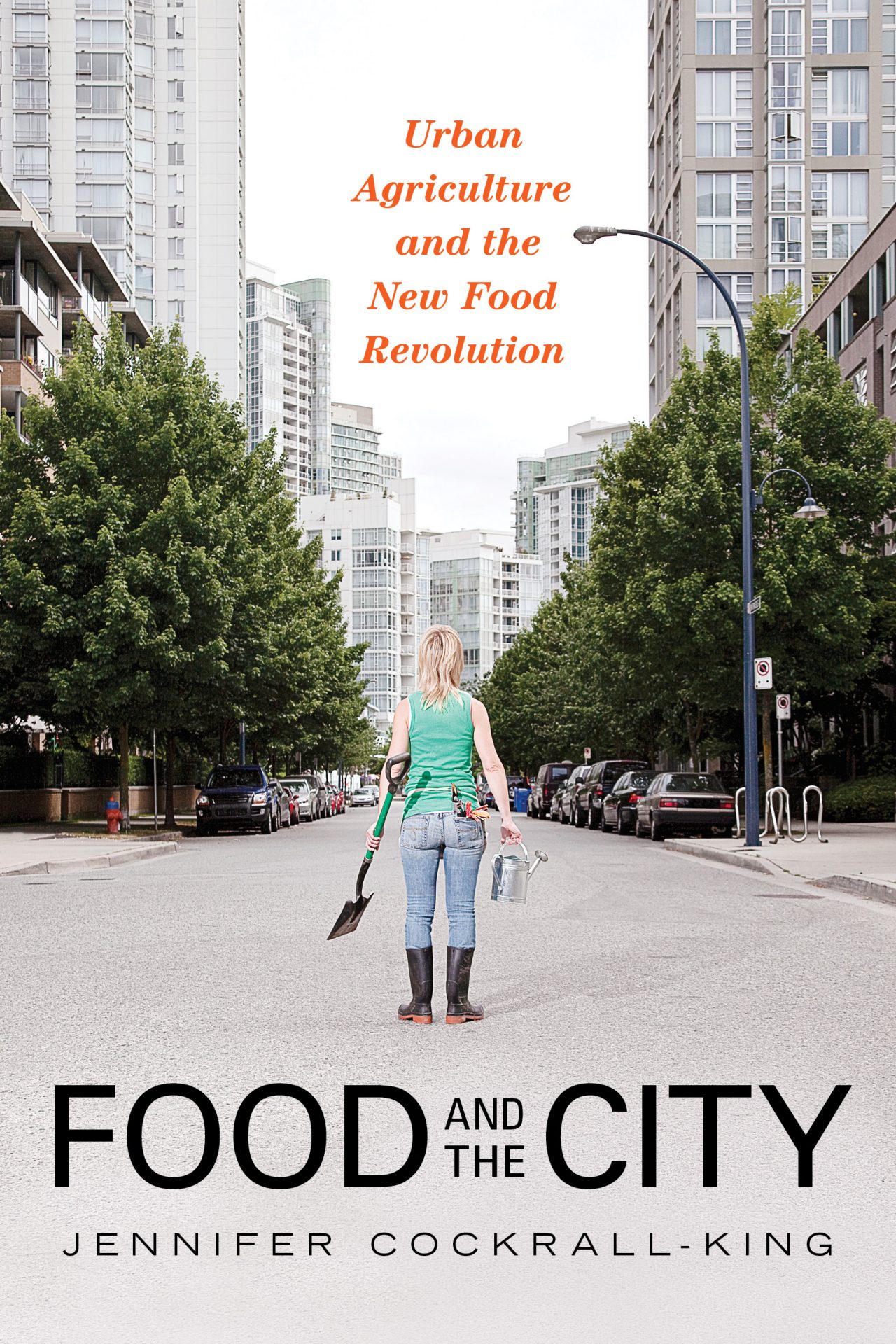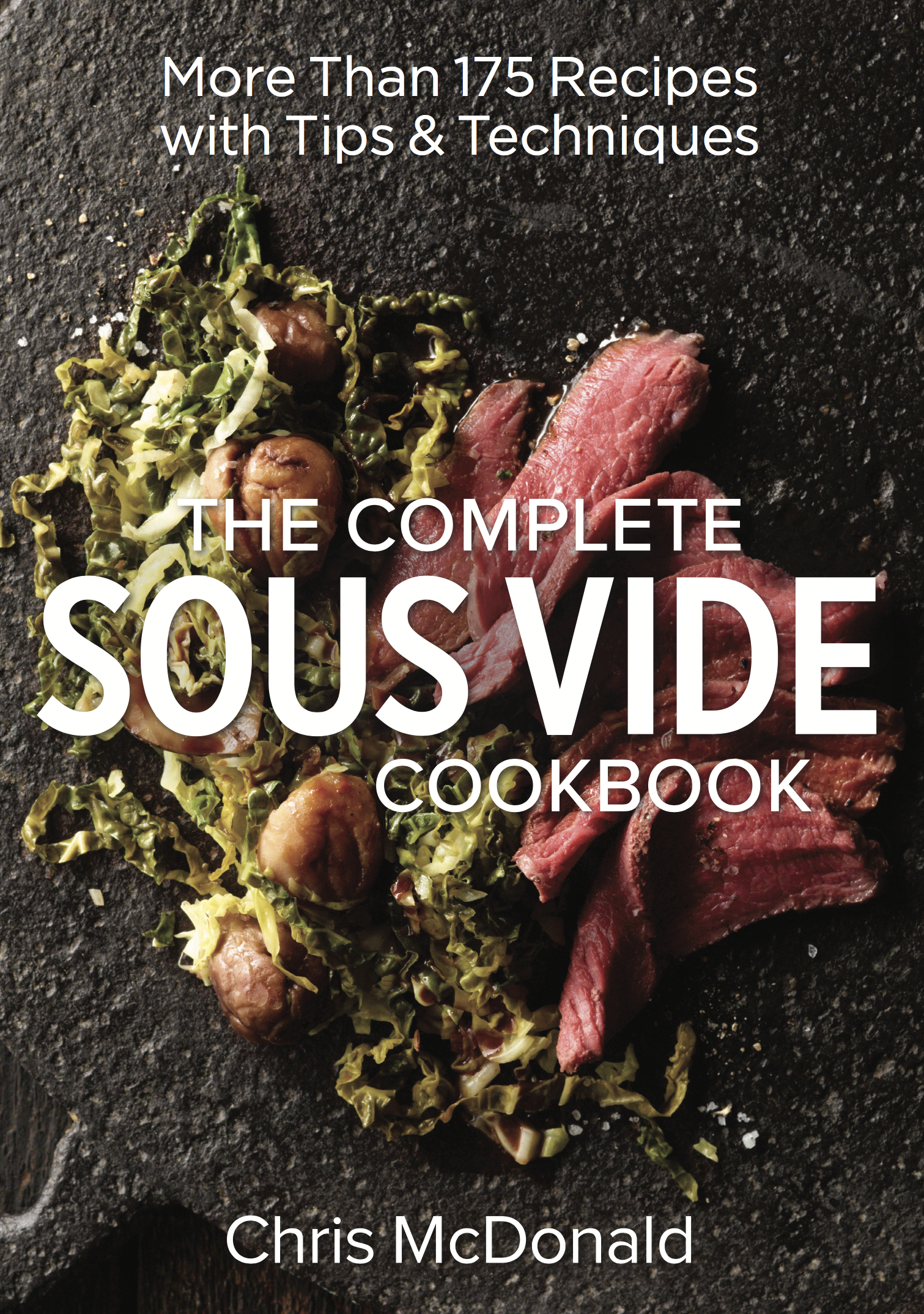The editors of Time magazine have embroiled David Chang in a controversy by naming him a God of Food. Deity or not, the evidence of Mr. Chang’s profound influence over the dining habits of the English speaking world’s bourgeoisie is indisputable. When an Udon joint opened up a few blocks away from my house at Yonge and St. Clair, I knew that Chang had won. The appetite for bowls of noodles in hot broth that he has elevated, and thereby popularized, has ascended to the status of the new normal. And yet all of this is still pretty new. It’s not even 10 years since Chang opened the Momofuku Noodle Bar, and only three since Joanne Kates dedicated a Globe and Mail fine dining review to the Bloor Street location of Kenzo Ramen. As much as we might love ramen (or udon, or soba, or izakaya), I think it’s fair to say most of us who are happily slurping away don’t know much about how the contents of our bowl were put together.
Two cookbooks published this season by 10 Speed Press reflect, amplify and do much to explain Chang’s triumph: Ivan Ramen by Ivan Orkin, and Japanese Soul Cooking by Tadashi Ono and Harris Salat. While both are cookbooks in the conventional meaning of the term – they present a collection of recipes – both may be best approached as guides to the new world of Japanese cuisine that diners in the bigger cites of this continent are flocking to.
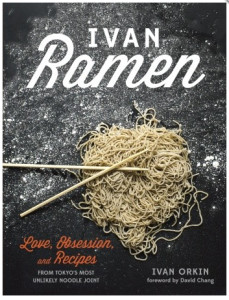 Chang’s presence is most felt in Orkin’s book: he wrote the forward to Ivan Ramen the cookbook. The forward humorously anticipates the opening of Ivan Ramen the New York City Restaurant, which will most likely follow the spectacular success of Orkin’s two Tokyo ramen shops. (Orkin will pretty much have to purposefully poison his customers for the new restaurant to fail, such is his reputation among the fooderatti.) From there the first half of the book is autobiography. Orkin explains how a Jewish corporate chef from the suburbs of New York became one of Japan’s best known chefs and a master of ramen. It’s a great human story, replete with tragedy and redemption: Ivan Ramen might be the first cookbook I have read that it makes obvious sense to turn into a movie. The second half of the book offers the recipes he uses at his first namesake Tokyo restaurant, and will at his soon to be opened American one. From this half, I speculate the third quarter (or the first half of the second half, if you follow), is devoted to the recipe for his signature shio (salty) ramen. Or, I should say, recipes since everything to be put into the bowl must be made from scratch using specific Japanese ingredients. I doubt very much I will find the several days it would take me attempt to make Ivan’s shio ramen, but by breaking the dish down into all the constituent components, Orkin gives his reader the best possible insight into how all those bowls are made. This technical knowledge, combined with the cultural knowledge set out in the memoir part of the book (that explains, for instance, that Orkin was accepted as a foreigner chef because ramen is the newest and loosest culture in Japanese cuisine), make Ivan Ramen the cookbook the authority on the subject and foodist required reading.
Chang’s presence is most felt in Orkin’s book: he wrote the forward to Ivan Ramen the cookbook. The forward humorously anticipates the opening of Ivan Ramen the New York City Restaurant, which will most likely follow the spectacular success of Orkin’s two Tokyo ramen shops. (Orkin will pretty much have to purposefully poison his customers for the new restaurant to fail, such is his reputation among the fooderatti.) From there the first half of the book is autobiography. Orkin explains how a Jewish corporate chef from the suburbs of New York became one of Japan’s best known chefs and a master of ramen. It’s a great human story, replete with tragedy and redemption: Ivan Ramen might be the first cookbook I have read that it makes obvious sense to turn into a movie. The second half of the book offers the recipes he uses at his first namesake Tokyo restaurant, and will at his soon to be opened American one. From this half, I speculate the third quarter (or the first half of the second half, if you follow), is devoted to the recipe for his signature shio (salty) ramen. Or, I should say, recipes since everything to be put into the bowl must be made from scratch using specific Japanese ingredients. I doubt very much I will find the several days it would take me attempt to make Ivan’s shio ramen, but by breaking the dish down into all the constituent components, Orkin gives his reader the best possible insight into how all those bowls are made. This technical knowledge, combined with the cultural knowledge set out in the memoir part of the book (that explains, for instance, that Orkin was accepted as a foreigner chef because ramen is the newest and loosest culture in Japanese cuisine), make Ivan Ramen the cookbook the authority on the subject and foodist required reading.
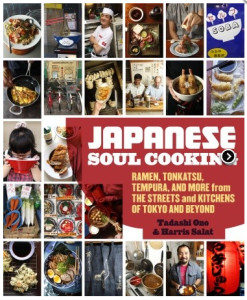 If Ivan Ramen tells a specific story, then Japanese Soul Cooking tells a general one. It’s written by Tadashi Ono and Harris Salat. Ono is described as a Japanese chef now based in New York City. Salat is food writer and journalist turned restaurateur, having opened Ganso in 2012 in Brooklyn. Japanese Soul Cooking is their third collaboration following Japanese Hot Pots and The Japanese Grill. It’s both a standard collection of recipes and photo-illustrated technical guide (i.e. ‘How to Prepare Shrimp Tempura’) to the Japanese equivalent (I think) of diner food. Like Ivan Ramen, it’s intelligently written and assumes some knowledge and kitchen proficiency from its readers. Also like Ivan Ramen, it works as a detailed guide to casual Japanese food for the curious Westerner. Were I lucky enough to travel to Japan, then Japanese Soul Cooking would be required pre-trip reading. Indeed, there is a list of recommended Tokyo restaurants at the back. This is a bedside cookbook that delivers its money’s worth irrespective of any actual cooking that might come out of it. And it offers an introduction and preview, I would bet, of some of the new trends likely to find their way onto North American menus from the Land of the Rising Sun.
If Ivan Ramen tells a specific story, then Japanese Soul Cooking tells a general one. It’s written by Tadashi Ono and Harris Salat. Ono is described as a Japanese chef now based in New York City. Salat is food writer and journalist turned restaurateur, having opened Ganso in 2012 in Brooklyn. Japanese Soul Cooking is their third collaboration following Japanese Hot Pots and The Japanese Grill. It’s both a standard collection of recipes and photo-illustrated technical guide (i.e. ‘How to Prepare Shrimp Tempura’) to the Japanese equivalent (I think) of diner food. Like Ivan Ramen, it’s intelligently written and assumes some knowledge and kitchen proficiency from its readers. Also like Ivan Ramen, it works as a detailed guide to casual Japanese food for the curious Westerner. Were I lucky enough to travel to Japan, then Japanese Soul Cooking would be required pre-trip reading. Indeed, there is a list of recommended Tokyo restaurants at the back. This is a bedside cookbook that delivers its money’s worth irrespective of any actual cooking that might come out of it. And it offers an introduction and preview, I would bet, of some of the new trends likely to find their way onto North American menus from the Land of the Rising Sun.
 Malcolm Jolley is a founding editor of Good Food Revolution and Executive Director of Good Food Media, the company that publishes it. Follow him at twitter.com/malcolmjolley
Malcolm Jolley is a founding editor of Good Food Revolution and Executive Director of Good Food Media, the company that publishes it. Follow him at twitter.com/malcolmjolley

